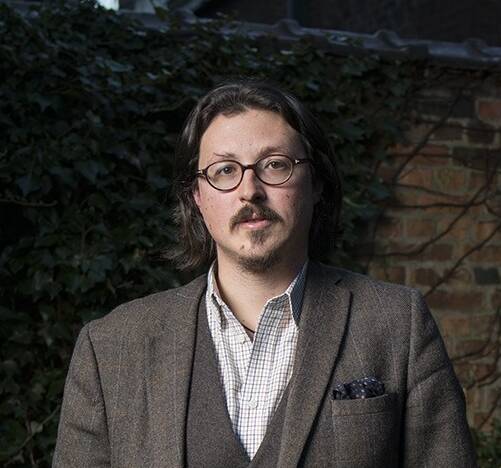Europe – Notwithstanding the COVID-19 pandemic that has dominated the media’s attention, recent discussions concerning the EU budget clearly highlight that the most important divide on the continent is not between the North and the South but rather between the East and West. This divide is all the more important as it is unexpected because, following the fall of the Berlin wall and the reunification of Europe, it seemed pretty obvious to many observers that Eastern Europe was going to quite happily become a “hinterland” for the German economy and quickly adapt itself to Western liberalism.
However, it has become plain to see for a number of years now that this “hi-jacked Europe” (as Kundera would say) is increasingly following its own path which has, paradoxically, been traced in part by the fact that, due to having been under the thumb of Russian communism, these regions were not able to mirror the evolutions of their Western neighbours. This has had two consequences: Firstly, that the Poles, Hungarians, Czechs, Slovaks used values such as patriotism, Christianity or national traditions in their resistance to counter Russian influence whereas, in Western Europe, it became more and more accepted to forsake these in lieu of a sort of globalised and Americanised melting-pot. Secondly, having experienced life under a dictatorial regime, those Europeans on the wrong side of the Wall have now been completely vaccinated against totalitarianism in all its forms and have learned how to diagnose it, be it shrouded in pseudo-humanist values, “unanimous” political decision-making or the invective gesticulations of the media, that henchman of the authoritarian apparatus.
Therefore, it should not be surprising that Eastern Europeans were very surprised to find out that their Western neighbours, after having so wholeheartedly celebrated the anti-communist movements, started to view them with more and more scepticism before finally becoming openly hostile to these same forces, slandering them as “nationalistic”, “pro-clerical”, “illiberal”, “intolerant” and other such slogans, once the Iron Curtain fell. Having believed that the fall of the Berlin Wall would allow these countries to re-join a “Europe of nations”, rooted in the Greco-Roman and Judeo-Christian values and traditions of its founding fathers, these new European citizens were met by a huge wake-up call for they now discovered that this project, instead of just highlighting differences between “Globalist” Western Europe and “Traditionalist” Eastern Europe in order to bring about a mutual understanding of each other, has adopted an attitude of Western domination, going so far as to intervening in the domestic policies of the newly-arrived Eastern European members states.
Thus, since the politicisation of the Visegrád alliance and electoral victory of the Fidesz Party in Hungary (in 2021) and of the Law and Justice Party in Poland (in 2015), a real rift has opened up between Eastern and Western Europe and it is difficult to say if, when and how this divide can re-sealed. On the one hand, the attempts to bring down the Polish or Hungarian governements through the use of the European Court of Justice, by cutting EU subsidies or by using the media and NGOs to indirectly help these countries’ opposition parties, will only further alienate a substantial portion of their citizens. This alienation might even go as far as to make the European project unpopular with all the incalculable consequences that will result in such a Brexit-inspired notion. On the other hand, the rift is extending to more and more European countries as they see the results of the Visegrád alliance, which shows how to be patriotic without being nationalistic, proud of one’s culture without being chauvinistic, close to one’s Christian roots without being intolerant, being conservative without being an extremist and being democratic without being politically correct. This could indeed set-up a dangerous precedent as it radically breaks from the normal narrative that everything that is any political movement on the right of multicultural universalism must inevitably lead to fascism.
At this stage, it is difficult to know how this conflict will pan out. Yet many observers, especially since the end of the Donald Trump administration and the effects of the ongoing COVID-19 crisis, have loudly announced the end of the “populist” era. As far as the countries of the Visegrád alliance go, this observation is doubly false: firstly, the Polish and Hungarian governments are not strictly-speaking “populists” for they have long exercised power and are deeply rooted in cultural traditions that are still very much at the forefront. This makes them very different from the Western “populist” conservatives who are rather liberal opportunists. Secondly, the COVID-19 crisis may well end up becoming a comparative advantage for Eastern Europe, which is much more economically resilient, more culturally stable and has few financial ties with the Euro zone (when it comes to Poland and Hungary at least) and therefore may be able to better pull through this crisis than a good deal of its Western neighbours.
Even if we are to take into account the alleged “violations” of the rule of law, we can imagine that in a not-too-distant future, when countries such as France are no longer able to ensure public order and security without resorting to authoritarian methods, thus transforming themselves into police states, it will be within so-called “illiberal” countries that this political and civil “normality” continues to flourish as opposed to the West, where it will be slowly grinded away. At that time, the decision to maintain certain cultural traditions and unity, and not be bullied by Brussels (or Berlin), might well be the better call…Provided to firmly hold the line during the critical years to come…
David Engels is a Belgian historian who currently works for the Zachodni Institute at Poznan in Poland. A specialist in ancient history, notably that of the Romans and the Seleucids, he is also a student of European law, having dealt for more than a decade of how the French and German language press cover questions regarding identity. In 2013, he published “Le Déclin” in which he makes a methodical comparison between the current European Union and the decaying Roman republic. In 2019, he released “Renovatio Europae” and “Que faire?”, two publications that talk about the future of Europe: the first with regards to the reforms of its institutions whilst the second is a call to individual citizens.
Translated from French by the Visegrád Post




